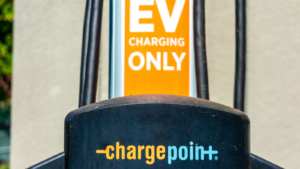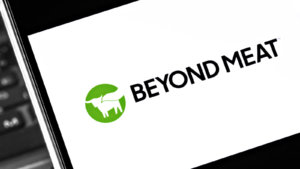3 Meme Stocks to Sell Even as the Euphoria Gains Traction
The U.S. markets are trading at all-time highs, and gold is nearing $2,500 an ounce. Little doubt exists that a rate cut is coming soon. As the markets are embrace euphoria, expect ample opportunities to make quick money. So, we will examine meme stocks to sell so that capital can be preserved.
Even in the biggest of bull markets, laggards and underperformers are apparent. Therefore, investors need to exercise caution and focus on fundamentals over price. Even the meme stocks need a reason to skyrocket. If business fundamentals are good and there is a news catalyst, it can translate into multibagger returns in quick time.
However, if the business fundamentals are poor with no catalyst visible, even the most talked about meme stock can disappoint. Let’s explore three meme stocks to sell as they are likely to see continued price or time correction.
ChargePoint Holdings (CHPT)

ChargePoint Holdings (NYSE:CHPT) has witnessed a big correction of 72% in the last 12 months. The correction has been on the back of weak fundamentals and disappointment on the growth front. I don’t see any catalyst that’s likely to change the company’s bearish outlook.
Notably, emerging EV charging companies have faced the challenge of cash burn. However, revenue growth has been healthy on the back of a big addressable market. For ChargePoint Holdings, revenue for Q1 of 2025 declined by 18% year-over-year (YOY) to $107 million.
At the same time, the loss from operations as a percentage of revenue increased. I would have been optimistic if the decline in revenue was associated with significant narrowing of operating level losses. While ChargePoint Holdings has guided to achieve positive adjusted EBITDA by January 2025, I remain skeptical.
Indeed, the EV charging infrastructure industry has seen intense competition. CHPT clearly seems to be among the laggards so expect the stock to remain depressed.
Beyond Meat (BYND)

After the euphoric rally of 2021, Beyond Meat (NASDAQ:BYND) has been in a sustained downtrend. Financial performance and the company’s fundamentals continue to weaken.
For Q1 of 2024, Beyond Meat reported revenue of $75.6 million, which was lower by 18% YOY. For the same period, adjusted EBITDA loss was $32.9 million. Clearly, the numbers have been disappointing.
Further, Beyond Meat ended Q1 with a cash buffer of $173.5 million. Considering the cash burn, fund raising is on the cards through debt or equity. The plant-based food company already has a debt of $1.1 billion. Credit metrics can potentially worsen in the coming quarters.
In February, the company unveiled the fourth generation of “Beyond Burger” and “Beyond Beef.” The focus has been on taste enhancement coupled with higher nutritional benefits. But the impact of new products on revenue remains to be seen. For now, it’s best to steer clear of BYND stock.
Polestar Automotive (PSNY)

Polestar Automotive (NASDAQ:PSNY) has witnessed a meltdown of almost 80% in the last 12 months. Don’t be surprised if the stock declines by another 30% to 50% in the next 12 months. The electric vehicle (EV) company has weak fundamentals. And with cash burn, equity dilution will translate into further correction.
For Q2 of 2024, Polestar Automotive reported deliveries growth of 80% quarter-on-quarter (QOQ) to 13,000. Further, for the first half of the year, the EV company delivered 20,200 vehicles. Yet, the concern is the level of cash burn.
Specifically, Polestar reported a 36% decline in revenue for Q1 of 2024 to $345.3 million. However, operating level losses were marginally higher at $231.7 million. While the company ended Q1 with a cash buffer of $784 million, I see the need for further fund raising in the coming quarters. With relatively better options available, it’s best to avoid PSNY stock.
On the date of publication, Faisal Humayun did not hold (either directly or indirectly) any positions in the securities mentioned in this article. The opinions expressed in this article are those of the writer, subject to the InvestorPlace.com Publishing Guidelines.
On the date of publication, the responsible editor did not have (either directly or indirectly) any positions in the securities mentioned in this article.

